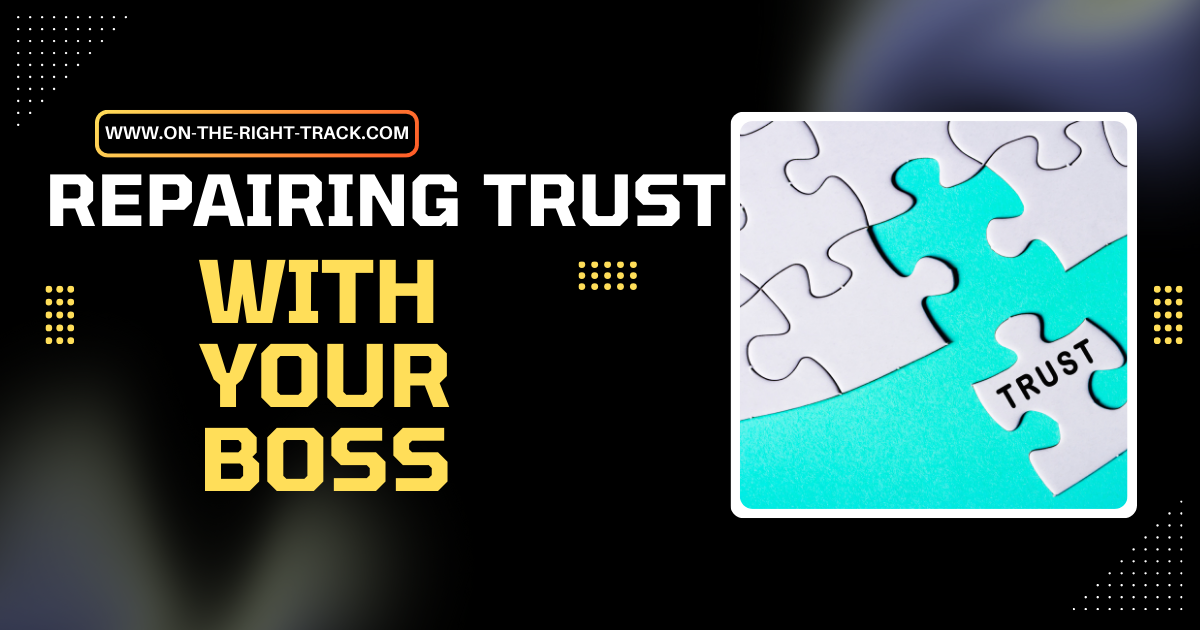I once shared a “do not share with anyone” bit of knowledge with a colleague I trusted. I trusted that Gail wouldn’t share it with anyone, but just like the old shampoo commercial, “They tell two friends who each tell two friends,” my trust was broken when she continued to share the information.
That wasn’t what bothered me, though. Sharing confidential information was entirely my fault, and I should have known better than to share it. What bothered me was that my boss wasn’t going to trust me, and I knew it.
Trust is the foundation of any professional relationship. When it’s compromised, the dynamic between you both can become strained, reducing productivity and job satisfaction. In our roles, trust is critical, as we often handle sensitive information, manage private schedules, and keep operations running smoothly behind the scenes. If a mistake or breach of trust occurs, it can disrupt not only the immediate relationship with the boss but the entire functioning of the team or office.
I knew I messed up. I knew that I not only had to admit it, but I had to repair our relationship.
Step 1: Acknowledge the Breach
The first step toward mending any broken trust is acknowledging that it happened. While I would have preferred to ignore that I had shared a confidence and hoped he never found out, I knew that was the wrong approach.
I sat down with him and admitted I had made a mistake. I used a sincere apology once I knew the breach occurred. I didn’t wait to find out if he knew I did this or not, I pre-emptively acknowledged what I did. I knew that I had to show him that honesty was essential, and I wasn’t going to shirk away from owning my mistake.
Do:
- Acknowledge the mistake directly and honestly.
- Apologize sincerely and specifically, without excuses.
Don’t:
- Downplay the mistake or shift blame to others.
- Avoid the issue by staying silent or hoping it goes unnoticed.
Step 2: Understand the Impact
Understanding how the mistake affected your boss, the team, or the team is important. Showing empathy and recognizing the consequences of your actions can go a long way in demonstrating your commitment to making things right. It shows you respect the others.
I explained that I knew that my breach would affect his trust in me. I knew that my reputation would be potentially affected, and although I wanted to downplay what I did, I acted like an adult, said what I needed to say, and stopped talking!
Do:
- – Ask how the mistake impacted your boss or the team if it’s unclear.
- – Show empathy and a willingness to understand the broader implications of the error.
Don’t:
- – Act as though the mistake is minor or only affected you.
- – Try to explain away the mistake before fully understanding its impact.
Step 3: Take Responsibility and Outline a Plan
During our conversation, I shared that although I never thought I would break a confidence, I did unintentionally. I realized once I shared the info that it was confidential. I promised never to do it again. Gail and I were work friends, but I learned that I shouldn’t have shared something with her. I told him that I made a mistake but learned from it.
Do:
- – Take full responsibility for the mistake without excuses
- – Offer concrete steps for how you plan to avoid making the same error again.
Don’t:
- – Make vague promises like “I’ll do better next time.”
- – Shift responsibility to others or use excuses like “it wasn’t my fault” or “no one told me.”
Step 4: Rebuild Trust Through Consistent Action
Trust isn’t rebuilt overnight. Consistent and reliable behavior will show they can trust you again. Expect this to take time, and don’t give up.
Do:
- – Stick to your plan.
- – Understand and acknowledge that transparent communication is vital to repairing the mistake
Don’t:
- – Expect immediate forgiveness or trust. Be patient.
- – Return to old habits or assume that the issue is resolved because some time has passed.
Step 5: Ask for Feedback and Remain Open to Criticism
As you work to rebuild trust, remaining open to feedback is essential. I was grateful that he didn’t bring it up in a passive-aggressive manner such as, “Well, you have proven you can’t keep secrets,” or “I can’t tell you some things as I can’t trust you.” We did rebuild our trust, and I learned an important lesson. As much as it hurt me to hear it, I listened to him tell me he was disappointed in my actions.
Do:
- – Ask for feedback at appropriate intervals if your plan is process-oriented
- – Accept criticism graciously, even if it’s hard to hear.
Don’t:
- Become defensive or impatient when feedback is given.
- Avoid asking for feedback, assuming everything is fine.
Once trust has been broken, fixing it is challenging but achievable. We need accountability, empathy, consistent action, and willingness to learn from our mistakes. Actions speak louder than words, so prove to your boss that you have learned from your mistakes.
This article was written by Rhonda Scharf and not by artificial intelligence.










